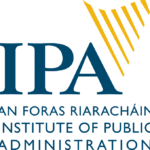Do you want to take the next step up on the professional ladder? Then the Lean Six Sigma Black Belt – QQI Level 8 training programme could be just what you need to achieve your career goals. Lean Six Sigma is a comprehensive and highly effective strategy for achieving and sustaining business success. And best of all? SQT Training is running a specialised course starting in October 2019.
About the Lean Six Sigma Black Belt – QQI Level 8
Lean Six Sigma is driven by a close understanding of customer needs, disciplined use of knowledge, facts and statistical analysis and diligent attention to a methodology to improve or reinvent business processes. Lean Six Sigma delivers bottom line savings, project by project, in an organised, proactive and highly transparent manner.
Typical Lean Six Sigma Black Belt projects are yielding savings of €300,000 per project. The project forms a major part of the training process as it is only by ‘doing’, that people really learn the tools and techniques of Lean Six Sigma. For this reason the training is specifically designed to be very practical and hands-on so that delegates, once they achieve Black Belt status, can go on to lead major improvement initiatives and drive lasting change within their respective organisations.
This course fully complies with the ISO 13053-1:2011 Standard and the ASQ (American Society for Quality) Certified Six Sigma Black Belt (CSSBB) body of knowledge.
What to Expect From This Course
This Lean Six Sigma Black Belt consists of 20 days face to face sessions over a six month period, over which the five modules of the course are spread. Face to face sessions are delivered over 6 training sessions (3 or 4 days in duration), this is followed a day of project presentations once projects are complete (18 months after the start date of the programme). The unique feature of this Black Belt programme is that certification is only achieved on completion of a major project, documenting application of the learning tools and evidence of the savings generated. Projects completed by delegates who have attended SQT’s Lean Six Sigma training courses have yielded significant cost savings, (in excess of €150 million), for Irish industry leading to increased competitiveness/improved job sustainability/company viability.
Key Success Factors differentiating Lean Six Sigma from other Quality Initiatives:
- Major emphasis on analytical approach, leading to accurate data-based decision making
- Project driven using a defined set of problem solving tools
- Top management leadership focused on success and driving bottom-line savings
- Structured training at various levels to deploy tools and methodology, so that they become “the preferred way of working”
The aim of the programme is to produce graduates who possess advanced knowledge of theory and practice of Lean Six Sigma to enable them to establish and/or take leadership roles in process improvement efforts in manufacturing or data intensive service organisations.
Participants achieve the following learning outcomes from the programme:
- Have a good understanding of advanced process statistics, including industrial designed experiments, and their application to expanding the boundaries of current knowledge within an existing, manufacturing or service industry, process
- Have detailed knowledge and understanding of a wide range of problem solving principles, tools and techniques and the manner in which these are combined in the overall pursuit of business process improvement via Lean Six Sigma
- Demonstrate the ability to draw conclusions from data through the use of advanced analytical and/or statistical techniques
- Be able to confidently engage in and successfully resolve process engineering projects in both the technical and managerial aspects and communicate effectively their resolution.
- Demonstrate, through leading a project, that the learner thoroughly understands the rigour and discipline of the Lean Six Sigma DMAIC methodology
- Be able to apply Lean Six Sigma concepts and advanced problem solving skills learnt in a variety of contexts in manufacturing and service environments
- Deliver significant financial and/or customer benefit for the learners employer (target of €100k annualized, €50k for SME’s) through a proactive, investigative and data driven problem solving approach
- Be able to research process engineering issues and solutions to issues, taking responsibility for his/her own learning in unfamiliar learning contexts
- Be able to work independently or effectively lead a cross functional team to solve complex process engineering problems
- Demonstrate the ability to overcome resistance to change in an organisation through effective communication with and influencing of key stakeholders.
| Course Type | Classroom Based |
| Course Location | Dublin, Ireland |
| Course Start Date | 1st October 2019 |
| Course End Date | 13th March 2020 |
| Course Fee | 12,750 |
| Course Duration | 21 days |
| Course Times | 9.00am – 5.00pm |
| Entry Requirements | Honours Bachelor Degree, level 8 in National Framework of Qualifications in Engineering, Science or equivalent Technical undergraduate qualification or Certificate in Process Engineering, Lean Six Sigma Green Belt Level 7 or A person who has demonstrated the achievement of this level by approved prior experiential learning (APEL). |
| Career Path | Successful graduates of this programme are exempt from the ‘Applied Process Improvement’ module on the BSc (Hons) in Process & Engineering Management (Level 8, 1 year Add-on). |
To register your place for this course, or find out more here.















